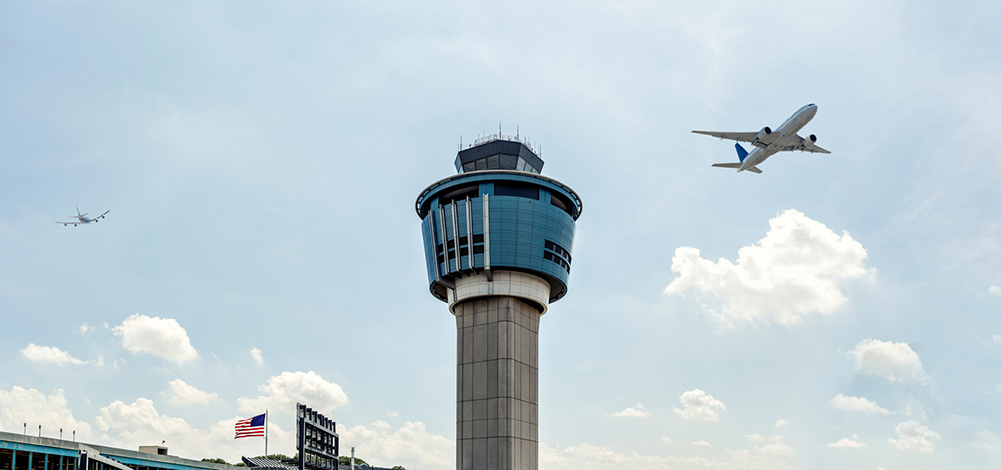The Obama FAA grounded qualified candidates in the name of justice. Why isn’t Trump moving to reverse?
Andrew Brigida is the son of a former New York City police officer. When he was 12, his family moved to a suburb of Phoenix, and at the urging of a neighbor he decided to become an air-traffic controller. In 2013 he graduated with two aviation-related bachelor’s degrees from Arizona State University, one of the dozens of schools with which the Federal Aviation Administration has partnerships to vet candidates for its air-traffic-control training program.
Graduates of these Collegiate Training Initiative schools then must pass the Air Traffic Selection and Training exam, or AT-SAT. This eight-hour test is designed to assess numeric ability, tolerance for high-intensity work, capacity for solving problems, and so forth. The goal is to determine their likelihood of completing the requisite training to become an air-traffic controller. Training a controller is expensive—on average it costs more than $400,000—and the CTI system has proved an accurate predictor of who’s got what it takes.
Mr. Brigida completed the college program, aced the AT-SAT and received a strong recommendation from an academic adviser. He was then placed on a list with other prospective controllers, who would be sent to Oklahoma City for the mandated 15 weeks of training. Five years later, Mr. Brigida still is not working as an air-traffic controller. What happened is the Obama administration.
In 2013 the Obama FAA changed the process for hiring controllers and then applied the new policy retroactively. No longer would the FAA give hiring preference to applicants with degrees from CTI schools or military experience, as it had in the past. In order to foster “diversity” in control towers, the agency would move away from merit-based hiring and toward more subjective measures. To attract a higher percentage of candidates from racial and ethnic minorities, a “biographical questionnaire,” or BQ, was added to the screening process. Applicants were asked about their upbringing, family hardship and the like. Those who didn’t score well enough on the BQ were deemed ineligible, regardless of how well they had performed on tests measuring cognitive skills.
What’s worse, Mr. Brigida and some 2,600 others already on the FAA referral list were notified that their AT-SAT results would be tossed and that they would need to reapply. Mr. Brigida did so but was told that he had failed the BQ and was no longer eligible to become an air-traffic controller.
“The most shocking thing to me is that nobody in that room when this change was decided—not the secretary of transportation, not the head of the FAA—raised his hand and said that we’re talking about airline safety here,” said William Perry Pendley of the Mountain States Legal Foundation, a public-interest law firm that is representing Mr. Brigida and other plaintiffs in a discrimination lawsuit against the federal government. “We’re not talking about somebody driving a truck. We’re talking about somebody guiding an aircraft into snowbound Chicago.”
Equally shocking is the revelation that the Trump administration is fighting in court to preserve the Obama-era policy. Like its predecessor, this administration is ignoring the fact that thousands of people like Mr. Brigida dedicated years of their lives to getting the proper schooling—in some cases incurring significant debt—only to see the rules changed in the middle of the game. Moreover, the changes weren’t to streamline the process or improve safety but rather to achieve what the government decided (for now) is the “right” racial mix.
The Trump administration should be returning to a sensible system that prioritizes objective measures of competence. After all, being a controller means making life-or-death decisions on a regular basis. Instead, the administration has opted to preserve a policy that in practice amounts to thinly disguised discrimination in the service of boosting the number of minority air-traffic controllers.
The Trump administration didn’t respond to my questions about the case, but the proper course of action is clear: Settle with Mr. Brigida and the thousands of other eminently qualified plaintiffs. Allow them to embark on careers as air-traffic controllers. And then reverse the wrongheaded and potentially dangerous hiring procedures implemented by an Obama administration obsessed with racial balance.
Mr. Pendley believes that his clients are victims of blatant racial discrimination and that the FAA’s current hiring practices won’t withstand scrutiny by the courts. If you care more about your plane landing safely than about the racial makeup of folks manning the airport control tower, you should hope his lawsuit succeeds.
This piece originally appeared in The Wall Street Journal
______________________
Jason L. Riley is a senior fellow at the Manhattan Institute, a columnist at The Wall Street Journal, and a Fox News commentator. Follow him on Twitter here.
This piece originally appeared in The Wall Street Journal
